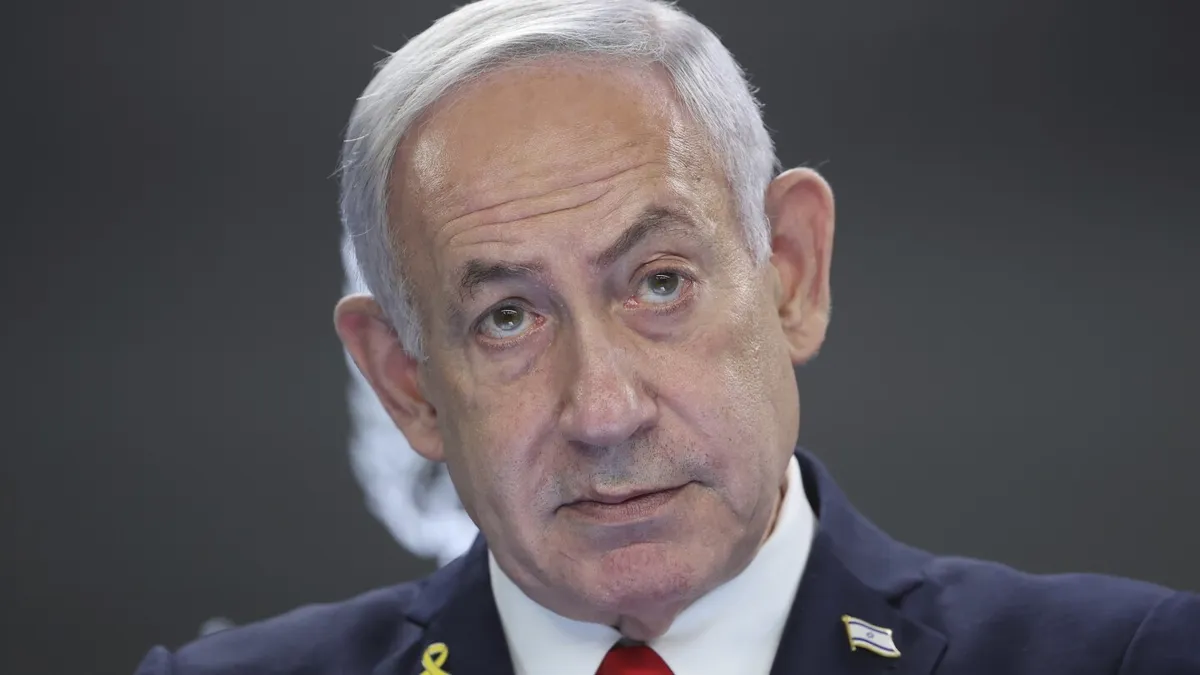
In a bold move, Israeli Prime Minister Benjamin Netanyahu ordered an airstrike this week aimed at assassinating senior Hamas leaders in Qatar. This operation represented a significant gamble in his ongoing campaign to push the militant group into submission. However, early indications suggest that this gamble may have backfired, raising questions about the effectiveness of Netanyahu's strategies against Hamas.
Netanyahu's primary objective was to eliminate Hamas' senior exiled leaders, thereby moving closer to his vision of a "total victory" against the group, which launched a devastating attack on Israel on October 7, 2023. However, Hamas claims that its leaders survived the strike, which has further tarnished Netanyahu's global standing—already compromised by the humanitarian catastrophe unfolding in Gaza.
The airstrike has provoked outrage from Qatar, a key U.S. ally and mediator in the conflict, and has drawn widespread criticism from across the Arab world. This incident has strained Israel’s relations with the White House, complicating hopes for a ceasefire and potentially jeopardizing the fate of the estimated 20 hostages still believed to be alive in Gaza.
Despite this setback, Netanyahu shows no sign of retreating from the conflict. His hard-line coalition continues to support his aggressive stance, leaving him with little immediate threat to his rule. The airstrike resulted in the deaths of five low-level Hamas members along with a Qatari security guard, but the intended targets reportedly survived. This failure diminishes Netanyahu's chances of declaring a decisive victory over Hamas, as noted by Harel Chorev, an expert on Arab affairs at Tel Aviv University.
Had the operation succeeded in eliminating key Hamas figures, it could have provided Netanyahu with a compelling narrative to assert that Hamas had been effectively destroyed. However, with the group's leadership intact, the prospect of achieving a ceasefire grows increasingly complicated. Members of Netanyahu's far-right coalition are pressing for an escalated military operation in Gaza City, despite significant hesitations from military leaders and a considerable segment of the Israeli public.
Israel has possessed the capability to target Hamas leaders in Doha since the onset of the conflict but refrained from doing so to maintain diplomatic relations with Qatar. The nation has played a critical role in facilitating previous ceasefires, leading to the release of numerous hostages. However, following this airstrike, analysts suggest that Israel has effectively severed its negotiation channels with Qatar, complicating any potential future talks.
Qatar's Prime Minister, Sheikh Mohammed bin Abdulrahman Al Thani, expressed skepticism about the viability of ongoing ceasefire negotiations, stating, "I don’t think there’s anything valid" in the current discussions after the strike. Despite this, he stopped short of terminating Qatar's mediation role, indicating a complex diplomatic landscape ahead.
The airstrike has also strained Israel's historically strong ties with the United States. Former President Donald Trump expressed dissatisfaction with the attack, assuring Qatar that such actions would not be repeated. However, he has not indicated whether he would impose any repercussions on Israel or press Netanyahu to halt military operations.
Despite the backlash, Israel is intensifying its military efforts in Gaza, with plans for a full-scale invasion of Gaza City pending. The Israeli military has urged civilians to evacuate, signaling a commitment to continue the offensive despite international calls for restraint. As political scientist Gayil Talshir noted, Netanyahu's government remains resolute in its military objectives, dismissing pressures from the United Nations and European Union.
If Hamas leaders have indeed survived, and negotiations continue to falter, Netanyahu risks alienating the significant portion of the Israeli public that favors ending the conflict and securing the release of hostages. However, as Yohanan Plesner from the Israel Democracy Institute points out, Netanyahu's political survival largely depends on his coalition, which continues to support his aggressive tactics.
The emotional toll of the ongoing conflict is palpable, particularly for families of hostages. Einav Zangauker, whose son is among the captives, expressed her anguish over the situation, questioning Netanyahu's decisions that seem to undermine any potential for a peaceful resolution. "Why does the prime minister insist on blowing up every chance for a deal?" she lamented.
As Netanyahu forges ahead with his military agenda, the implications of this airstrike extend beyond immediate tactical outcomes. The potential for diplomatic solutions appears increasingly dim, putting the future of hostages, international relations, and Netanyahu's political career at a critical juncture.